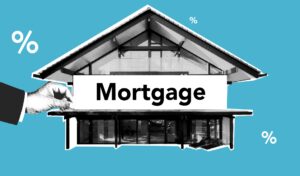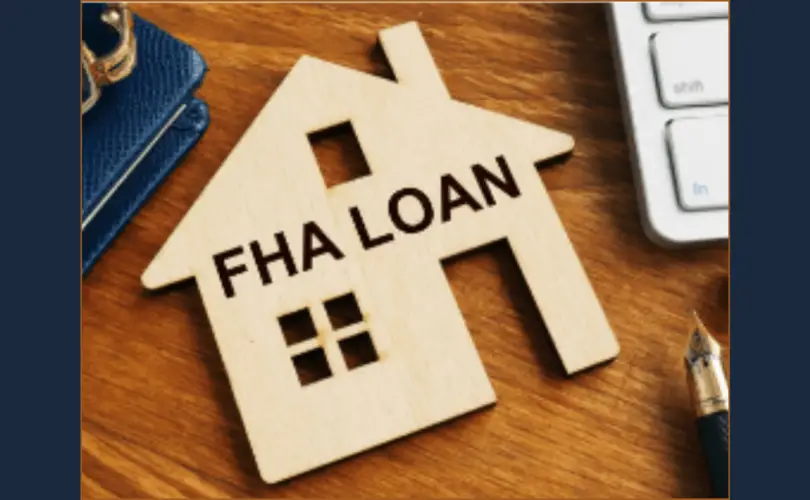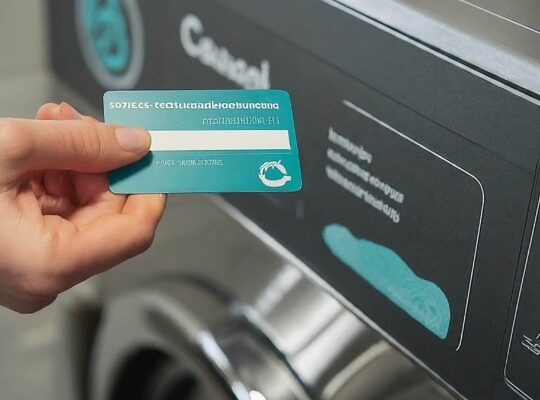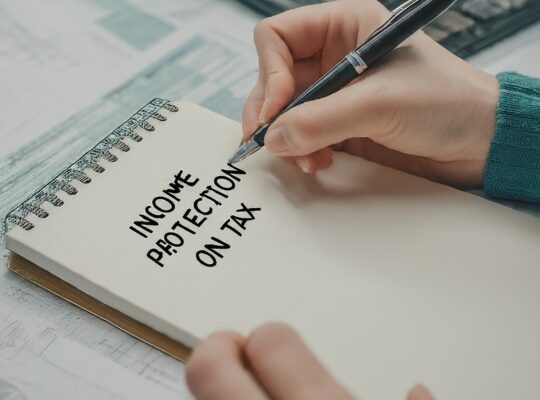Having a less-than-perfect rental history is okay and part of life, but the thing is questioning yourself “Can I get an FHA loan with an eviction?” A major concern among many prospective homebuyers is whether past evictions have the potential to impact the ability to secure a Federal Housing Administration (FHA) loan. One thing about FHA loans is that they are popular, particularly due to their accessibility for people with lower credit scores and smaller down payments.
Does eviction really affect a person’s eligibility for home buying, apparently, it does stand as a major obstacle, but it does not automatically disqualify a person from obtaining an FHA loan. FHA is guided by certain guidelines and requirements that have to be followed by lenders during the evaluation of an applicant with an eviction record. The good thing is that the guidelines do take into account the circumstances surrounding the eviction and the overall financial profile of the applicant.
What is an FHA Loan? Definition and Purpose
An FHA loan is a mortgage that is insured by the Federal Housing Administration (FHA), a government agency within the U.S. Department of Housing and Urban Development (HUD). The FHA was established in 1934 during the Great Depression to stimulate the housing market by making homeownership more accessible to a broader segment of the population.
By insuring these loans, the FHA provides a safety net for lenders, reducing their risk and encouraging them to offer mortgages to individuals who may not qualify for conventional loans due to lower credit scores or limited savings.
Major Characteristics of FHA Loans
- Lower Down Payment – The lower down payment requirement of FHA Loan is perhaps the most attractive feature of the loan. Borrowers get to secure homes with a down payment of as low as 3.5% of the purchase price. Due to this, a lower barrier to entry is created and the loans become more appealing to first-time homebuyers who lack/are yet to have accumulated significant savings for a down payment.
- Flexible Credit Requirements – FHA loans are designed to be accessible to borrowers with a range of credit scores. People with credit scores as low as 580 qualify for the 3.5% down payment option. Even those with scores between 500 and 579 are also eligible, though they must make a higher down payment of 10%.

- Higher Debt-to-Income Ratios – FHA loans allow for higher debt-to-income (DTI) ratios compared to conventional loans. The DTI ratio is meant to measure the percentage of a borrower’s monthly income that goes towards paying debts. A higher allowable DTI ratio means that borrowers with significant existing debt (like student loans or car payments) have a better chance of qualifying for an FHA loan, offering them more flexibility in managing their finances.
- Mortgage Insurance – In order to protect lenders from potential losses, borrowers are required to pay mortgage insurance. This includes an upfront mortgage insurance premium (UFMIP), which is typically 1.75% of the loan amount, paid at closing or rolled into the loan. Borrowers must also pay an annual mortgage insurance premium (MIP), which is divided into monthly payments. The MIP amount varies based on the loan-to-value ratio, loan amount, and the length of the loan.
How FHA Loans Work: The Application Process
The first step in obtaining an FHA loan is to get pre-qualified or pre-approved by an FHA-approved lender. Pre-qualification involves providing basic financial information to get an estimate of how much you borrow. Pre-approval is a more rigorous process where the lender verifies your financial information, resulting in a conditional commitment for a specific loan amount.
Once pre-approved, you start searching for a home within your budget. It’s important to ensure that the property meets FHA standards, as the FHA will require an appraisal to confirm that the home is worth the purchase price and meets minimum property requirements.
Related Post: Does FHA Allow Income Based Repayment for Student Loans
After selecting a property, you get to complete a loan application and provide necessary documentation, such as income verification, employment history, and credit reports. The lender then submits your application to the FHA for underwriting. During underwriting, the FHA reviews your financial situation and the property’s appraisal to ensure it meets their guidelines.

In case your loan is approved, you will move to the closing process. At closing, you will be required to sign all necessary documents, pay any required closing costs, and receive the keys to your new home. The UFMIP is paid at this time or added to your loan amount.
Mortgage Insurance in Detail
Mortgage insurance is a key component of FHA loans, designed to protect lenders in case borrowers default on their loans.
Below is a clearer/closer look at the two types of mortgage insurance associated with FHA loans:
- Upfront Mortgage Insurance Premium (UFMIP)
- The UFMIP is a one-time payment made at closing or financed into the loan amount.
- It is typically 1.75% of the loan amount.
- Example: For a $200,000 loan, the UFMIP would be $3,500.
- Annual Mortgage Insurance Premium (MIP)
- The MIP is paid monthly as part of your mortgage payment.
- The amount varies based on the loan amount, loan term, and loan-to-value ratio.
- For most loans, the annual premium ranges from 0.45% to 1.05% of the loan amount.
- Example: For a $200,000 loan with an annual MIP of 0.85%, the monthly premium would be approximately $142.
How Evictions Affect Your Credit
An eviction significantly impacts your credit report and score. When a landlord files an eviction lawsuit, it leads to a judgment against you, which appears on your credit report. Additionally, unpaid rent or related fees sent to collections further damage your credit score.
These negative entries stay on your credit report for up to seven years, potentially complicating your efforts to secure new housing or a mortgage.
FHA Loan Requirements and Evictions
While the FHA itself does not explicitly disqualify applicants with past evictions, the underlying credit issues associated with evictions pose challenges. Here’s how:
- Credit Score: As mentioned, FHA loans are accessible to those with lower credit scores, but evictions significantly lower your credit score.
- Debt-to-Income Ratio: If the eviction led to financial instability or increased debt, your debt-to-income ratio might exceed the FHA’s guidelines.
- Loan Approval: Lenders consider your overall financial health. A history of eviction raises red flags, leading lenders to scrutinize your application more closely.
Steps to Improve Your Chances of Getting an FHA Loan After an Eviction
1. Review and Repair Your Credit Report
Start by obtaining a copy of your credit report from the three major credit bureaus: Equifax, Experian, and TransUnion. Review the reports for accuracy and dispute any errors. Address outstanding debts, including those related to the eviction, to improve your credit score over time.
2. Build a Stronger Financial Profile
- Save for a Larger Down Payment: A larger down payment offsets some of the risk in the eyes of the lender. Aim to save more than the minimum requirement if possible.
- Reduce Your Debt: Paying down existing debt improves your debt-to-income ratio, making you a more attractive candidate for an FHA loan.
- Increase Your Income: Additional income sources or job stability strengthens your application.
3. Provide a Solid Rental History
Demonstrating a stable and responsible rental history post-eviction is essential. Secure a rental property and ensure timely payments to rebuild your credibility as a tenant. Obtain letters of reference from landlords to support your application.

4. Prepare a Detailed Explanation
Be ready to explain the circumstances surrounding the eviction. A well-documented letter of explanation provides context and demonstrates that you’ve taken steps to address the issues that led to the eviction. Include:
- The Reason for the Eviction: Whether it was due to financial hardship, medical emergencies, or other reasons beyond your control.
- Steps Taken to Resolve the Issue: Highlight how you’ve rectified the situation, such as settling outstanding debts or improving your financial habits.
- Current Financial Stability: Emphasize your current financial health and stability, supported by documentation like pay stubs, bank statements, and employment records.
5. Work with an FHA-Approved Lender
Partnering with an experienced FHA-approved lender is invaluable. They provide guidance on improving your application and navigating the FHA loan process. Lenders familiar with FHA loans understand the nuances and offer tailored advice to increase your chances of approval.
Alternatives to FHA Loans
If securing an FHA loan proves challenging due to an eviction, consider these alternative options:
1. Conventional Loans
While conventional loans typically have stricter requirements, improving your credit score and financial profile makes this a viable option. Some conventional loans may offer competitive terms for those with strong financial credentials.
2. VA Loans
If you’re a veteran or active-duty service member, VA loans offer excellent benefits, including no down payment and no private mortgage insurance (PMI). VA loans also have more lenient credit requirements, making them a worthwhile option to explore.
3. USDA Loans
USDA loans are designed for rural and suburban homebuyers with low to moderate incomes. They offer benefits like no down payment and competitive interest rates. If you meet the geographic and income requirements, a USDA loan could be an alternative to consider.
4. Lease-to-Own Programs
Lease-to-own programs allow you to rent a home with the option to purchase it after a specified period. This provides time to improve your credit and save for a down payment while securing a property you plan to buy.
Conclusion
Securing an FHA loan with a history of eviction is challenging but not impossible. Understanding how evictions impact your credit and taking proactive steps to improve your financial profile, enhance the chances of approval. Remember to review and repair your credit report, build a stronger financial profile, provide a solid rental history, and prepare a detailed explanation of your eviction.
Working with an FHA-approved lender and exploring alternative loan options also increase your chances of achieving your homeownership goals.
Frequently Asked Questions (FAQs)
1. How long does an eviction stay on your credit report?
An eviction judgment remains on your credit report for up to seven years. However, its impact on your credit score diminishes over time, especially if you take steps to improve your overall credit health.
2. Can I get an FHA loan with a low credit score?
Yes, you get an FHA loan with a credit score as low as 580 for the low down payment option (3.5%). If your score is between 500 and 579, you still qualify with a higher down payment (10%).
3. What should I include in a letter of explanation for an eviction?
Your letter of explanation should include the reason for the eviction, steps taken to resolve the issue, and evidence of your current financial stability. Providing documentation like pay stubs, bank statements, and landlord references strengthens your explanation.
4. Are there any programs to help improve my credit score after an eviction?
Several programs and strategies help improve your credit score, such as credit counseling services, debt management plans, and secured credit cards. Consistently making on-time payments and reducing debt are key steps in rebuilding your credit.
5. How can an FHA-approved lender assist me in getting a loan after an eviction?
An FHA-approved lender offers personalized advice on improving your application, helps you understand FHA loan requirements, and guides you through the loan process. Their expertise is invaluable in navigating the challenges of securing a loan with a history of eviction.








